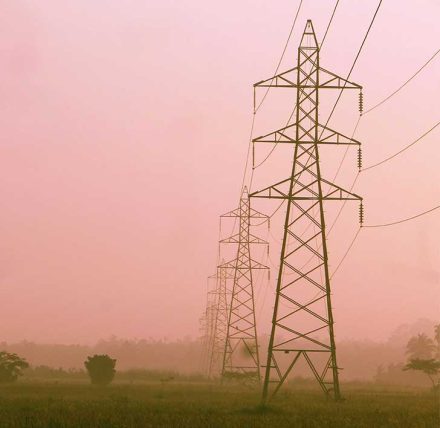


Is the UK’s power grid capacity threatening progress towards climate targets?
INSIGHTS
The UK’s biggest hurdle in meeting its climate targets is the current backlog of renewable energy projects waiting to be connected to the UK National Grid. Due to constraints on the grid capacity, there are approximately 400 gigawatts of renewable projects queuing up to be connected to the UK’s power grid, with 40% of grid connection dates offered to developers being for 2030 or beyond. Undoubtedly, the grid constraints are impacting green investment which could hamper the UK’s progress towards its climate targets, and this posits the question; how do we solve the UK’s power grid problem?
On 13 November 2023, the energy watchdog Ofgem announced a new policy to speed up how long it takes energy projects to connect to the grid and attract new investment. For years, grid connection applications have operated on a ‘first come, first served’ basis. However, new rules announced by Ofgem would hand National Grid’s electricity system operator (ESO) the power to terminate projects that were not progressing against their specific milestones, including proof of funding or planning permission. The new rule would apply to all projects having a connection date after November 2025. The ESO provided that between 60% and 70% of projects in the queue “ultimately fail to materialise or connect”. Whilst these new powers were a welcome change to the current system, a report conducted by the Environmental Audit Committee suggested the changes have not yet resulted in bringing forward the connection date. As such, whilst there have not been changes in bringing forward the connection date, it may be that in time these will have a material effect on connection times.
It is not solely a matter of reducing the queue for grid connection, but rather a matter of rectifying the inherent problems with the lines themselves. Large parts of the grid infrastructure are ageing, with the average age of electricity transformers being around 63 years. Currently, experts estimate that nearly £60bn worth of investment is required for the grid infrastructure to meet the UK’s de-carbonisation targets for 2035. There are approximately 4,000 miles of undersea cables and 1,000 miles of power lines including pylons required to meet the 2035 targets. It is important to also note that new connections and more grid capacity will also be needed due to individuals and organisations switching to electricity for their cars or heating their properties. Conversely, whilst additional materials are required to meet the targets, the supply chain may show signs of struggling to meet the demand. Global demand for components such as high-voltage cables, pylons and converter station equipment threatens to outweigh the manufacturing capacity, and this could push British companies into an international race to secure the necessary supplies to meet net-zero demands.
Although the added investment may result in the creation of more than 20,000 jobs in the UK, the problem faced is acquiring skilled workers capable of carrying out the necessary work for helping to deliver the energy transition. After attending the Supply Chain and Skills session at the All-Energy Conference in Glasgow, it was apparent that the members of the panel were aware of the skills shortages in the civil engineering sector, agreeing that funding cuts in apprenticeships and insufficient curricula resulting in a lack of overall practical experience within the respective field were the most prominent reasons for the shortage.
The myriad issues pertaining to the grid highlight the difficulties faced in upgrading the infrastructure to meet the UK’s net-zero targets. Whilst the level of investment needed for the upgrades is significant, there are also non-financial matters that require immediate attention if we are to meet the targets, with issues facing the queue management system of grid connections, the demand for resources outstripping the supply, and the issues facing the skills shortages in the UK; all the problems highlight the need for a collective strategy for the Government, Distribution Network Operators, academic bodies and organisations to improve the grid.
About the author
Trainee Solicitor
RELATED
CONTACT US
Call us for free on 0330 912 0294 or complete our online form below for legal advice or to arrange a call back.